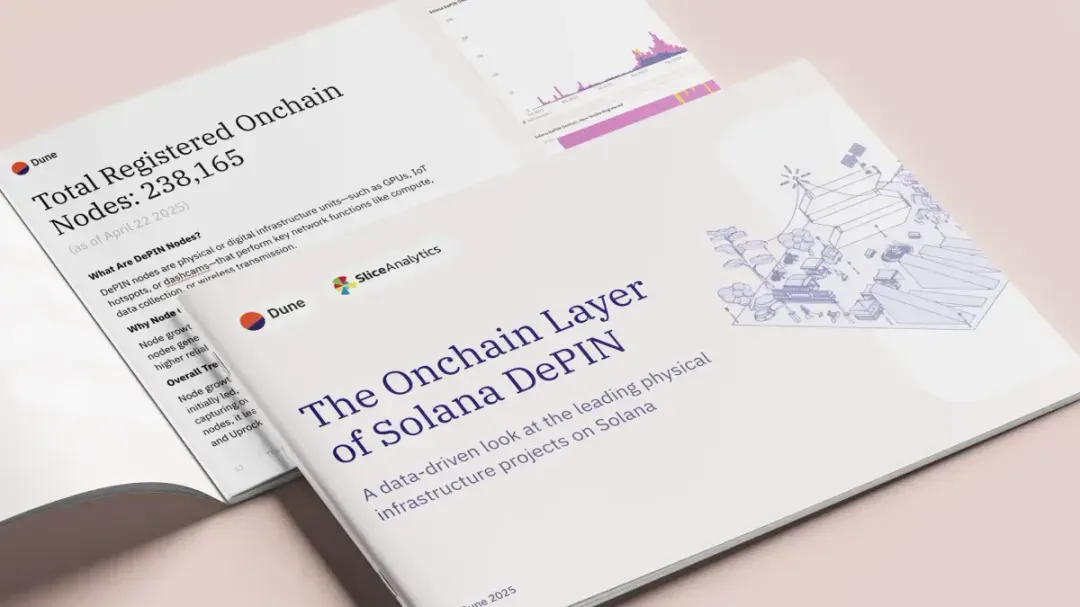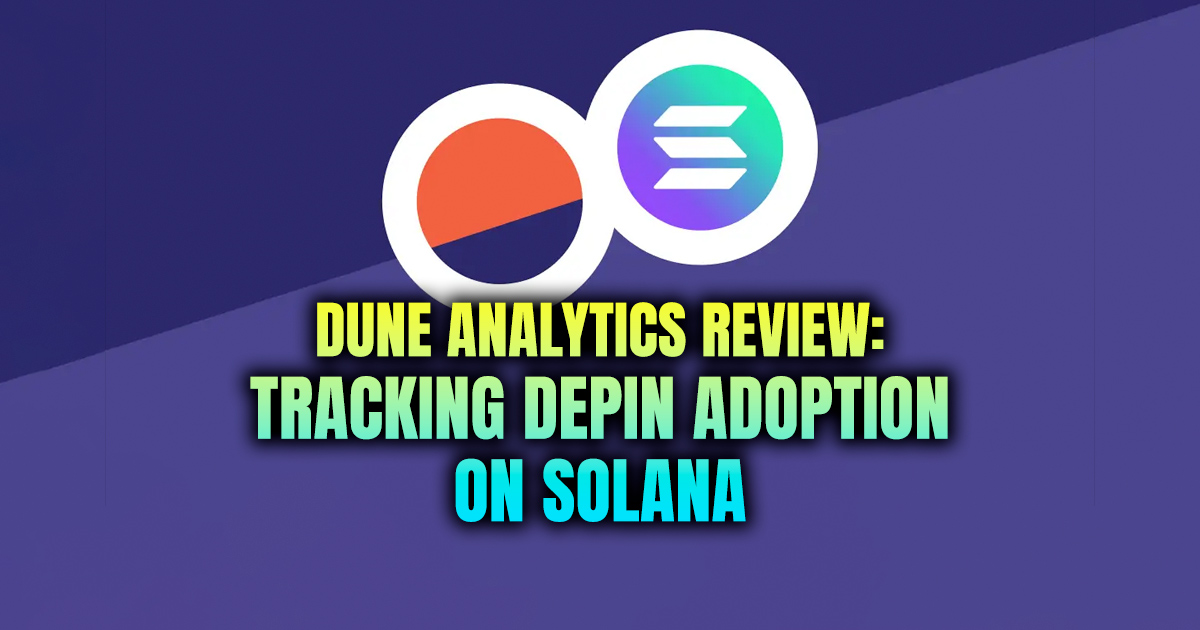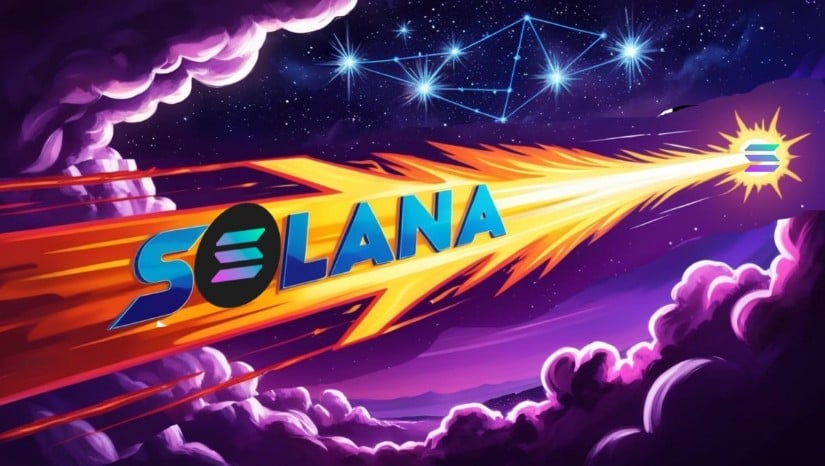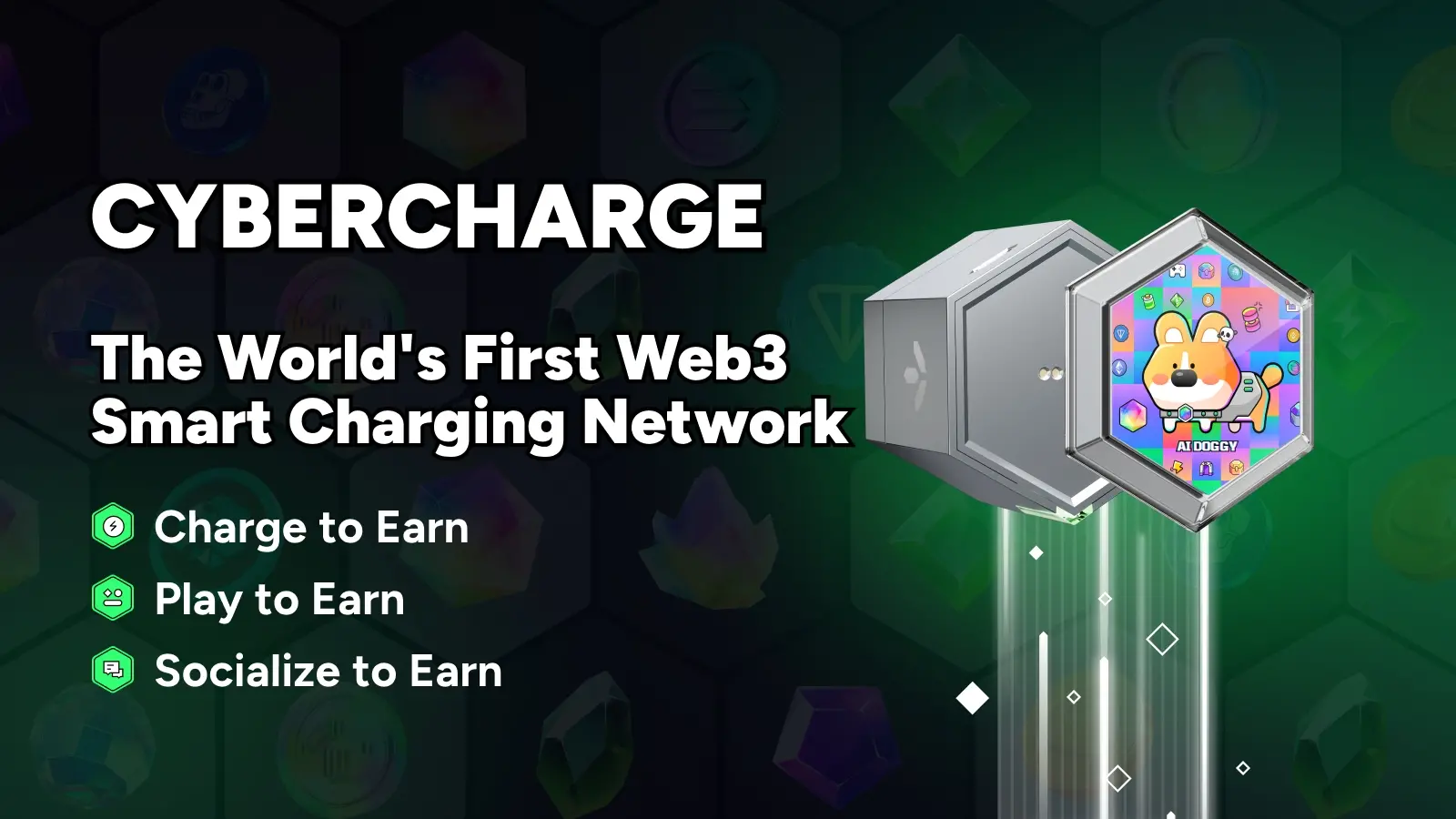Latest Solana News

a month ago
Exploring the Potential of DEPIN in Web3
In the rapidly evolving landscape of Web3, DEPIN, or Decentralized Physical Infrastructure Networks, is gaining significant attention. This innovative concept leverages the principles of decentralization to transform fragmented resources into valuable services. Amira Valliani, head of DEPIN at the Solana Foundation, emphasizes that DEPIN enables individuals to contribute their idle resources, such as WiFi bandwidth or data collection capabilities, to create a collaborative infrastructure. Projects like HiveMapper and Helium exemplify this model, allowing users to earn tokens by sharing their resources, thereby democratizing access to essential services that were previously dominated by large corporations.
The relationship between DEPIN and artificial intelligence (AI) is particularly noteworthy. As AI technology continues to advance, the demand for real-world data is skyrocketing. DEPIN serves as a vital data collection network that can provide the necessary information for AI applications, such as self-driving cars and delivery robots. By utilizing decentralized networks, DEPIN can gather data more efficiently and cost-effectively than traditional methods. This synergy between DEPIN and AI not only enhances the capabilities of AI systems but also opens new avenues for decentralized AI projects, challenging the dominance of major tech companies.
Looking ahead, Valliani predicts that DEPIN could evolve into a trillion-dollar industry, driven by the maturation of development tools, the increasing demand for real-world data due to AI advancements, and the influx of practical entrepreneurs into the Web3 space. As DEPIN lowers the barriers to entry for individuals to participate in infrastructure development, it creates new job opportunities and empowers ordinary people to engage in the digital economy. For those who missed the early days of Bitcoin and Ethereum, DEPIN presents a promising opportunity to get involved in the next wave of technological innovation.

a month ago
Solana Emerges as Leader in DePIN Projects: A Comprehensive Analysis
The latest research report from Dune and Slice Analytics presents a comprehensive analysis of the Decentralized Physical Infrastructure Network (DePIN) projects on Solana, highlighting their development status, market performance, and on-chain data. DePIN is emerging as a transformative model that utilizes cryptocurrency incentives to operate real-world infrastructure, such as shared GPUs and telecommunications networks. Solana has positioned itself as a leading platform for these projects due to its high throughput and low transaction costs, making it an ideal environment for the growth of DePIN applications. As of April 2025, the total market value of DePIN projects on Solana reached $3.25 billion, surpassing other blockchain platforms significantly.
The report categorizes DePIN projects into five main segments: Compute, Wireless, Sensor, Server, and AI, with the Compute category dominating the market at 71.2%. Projects like Render and Helium are leading the way, providing decentralized processing power and wireless connectivity, respectively. The growth of registered on-chain nodes for DePIN projects on Solana has also been notable, reaching 238,165 by April 2025. Helium, in particular, has seen rapid growth in its mobile user base and node deployment, while Render and Hivemapper continue to expand their contributions to the ecosystem.
As the cryptocurrency industry matures, on-chain revenue has become a crucial metric for evaluating the sustainability of these projects. By April 2025, the total on-chain revenue for DePIN projects on Solana reached $5.98 million, indicating a strong product-market fit. Helium emerged as the top earner, while Render and Hivemapper also demonstrated significant revenue generation. The report underscores Solana's dominance in the DePIN space and emphasizes the importance of transparency in tracking on-chain activities, which remains a challenge due to the reliance on off-chain hardware and third-party integrations.

a month ago
Solana's DePIN Ecosystem: A New Era of Decentralized Infrastructure
The Solana ecosystem is witnessing a surge in decentralized physical infrastructure networks (DePIN), particularly following the Solana Crossroads event in Istanbul. Developers are leveraging blockchain technology to build innovative infrastructure, including wireless networks and AI capabilities. One standout project is the Render Network, which is creating a decentralized platform for 3D creators and AI developers to access global GPU power without relying on centralized servers. Recent on-chain data reveals that Render Network has achieved peak revenues of $300,000 per week, with over 121 million RNDR tokens burned, indicating strong user engagement. The platform integrates with popular industry tools like Blender and Arnold, and contributors have earned more than 2.4 million RNDR tokens in rewards, showcasing the potential of decentralized computing.
Another notable player in the DePIN space is Nosana, which is revolutionizing AI task processing by decentralizing inference. Instead of depending on major cloud providers like AWS, Nosana enables node operators to handle AI workloads. Since its mainnet launch in January 2025, the number of daily active nodes has more than doubled to over 600, with a total of 4,200 nodes operating across more than 60 countries. This global reach highlights how Nosana is meeting the increasing demand for AI processing in a community-driven manner, further solidifying the role of DePIN in the evolving tech landscape.
Lastly, UpRock is tapping into the potential of mobile devices by allowing users to share bandwidth and computing power in exchange for crypto rewards. Users are reportedly earning over $1,500 weekly, with a focus on mobile-first DePIN solutions. UpRock employs on-chain buybacks to sustain contributor rewards, emphasizing its commitment to advancing the DePIN movement. Overall, Solana's DePIN ecosystem is not only thriving but also demonstrating that the future of crypto lies in building essential tools that enhance everyday life, rather than merely trading assets.

a month ago
Solana's Bullish Momentum: Transfer Volumes and Capital Inflows Drive Price Predictions
Solana is experiencing a significant bullish momentum, driven by increased transfer volumes, capital inflows, and a strong presence in the DePIN market. Recent data indicates that Solana has moved approximately $28.07 billion in transfer volume over the past 30 days, surpassing both Ethereum and BNB. This surge not only highlights Solana's growing real-world usage but also strengthens the bullish case for its native token, $SOL. As market sentiment shifts towards risk-on, analysts are optimistic about Solana's price potential, with targets set between $170 and $180.
In addition to impressive transfer volumes, Solana has seen a remarkable capital inflow of $4.72 billion in just one week, bringing its total capital to $9.46 billion. This marks the highest level since March and signals a resurgence of confidence in the network. Analysts suggest that this influx reflects rising institutional interest and liquidity, further bolstering the bullish narrative surrounding Solana. The recent breakout from a falling wedge pattern reinforces this optimism, with expectations of continued upward momentum if the price holds above key resistance levels.
Moreover, Solana's dominance in the DePIN market has reached 46.5%, showcasing its potential for future growth. With only 17 Solana-based assets compared to 70 on EVM chains, this dominance suggests that Solana is well-positioned for price appreciation. As the network aligns both technical and fundamental factors, analysts predict that if Solana maintains its momentum, it could reach new heights, potentially exceeding $220 in the near future. The combination of rising transfer volumes, significant capital inflows, and DePIN market leadership sets the stage for Solana's continued success in the coming months.

a month ago
The Rise of DePIN: Innovations and Challenges in 2024
In 2024, the DePIN sector is witnessing a significant surge in interest, as highlighted by Messari's State of DePIN 2024 report. Over 13 million devices are actively participating in various DePIN networks daily, with the total market capitalization of related tokens exceeding $50 billion. Despite this growth, the sector's current scale is modest compared to its potential trillion-dollar market. The report notes that 20 DePIN projects have surpassed 100,000 active nodes, with five exceeding one million. However, these projects face ongoing challenges in demand generation and monetization, which are critical for sustainable growth.
Helium, a pioneer in the DePIN space, continues to enhance its network through upgrades and expansions. Following its migration to the Solana chain, Helium saw a rise in IoT hotspots to 32,900 and 5G mobile hotspots to 24,800 by Q4 2024. The partnership with traditional telecom operators has significantly improved network utilization, with Helium offloading over 576 TB of data traffic, marking a 555% increase quarter-over-quarter. Despite these advancements, the DePIN sector struggles with high hardware costs, cold start challenges, node quality issues, and inadequate Sybil resistance mechanisms, which hinder its overall market performance.
Emerging projects like CyberCharge are exploring innovative solutions to address these challenges by lowering barriers to entry. CyberCharge has introduced a decentralized charging network with a Charge-to-Earn model, allowing users to earn crypto rewards through everyday charging activities. This approach not only makes participation accessible but also enhances user engagement through interactive features. As the DePIN sector evolves, the focus on real-world applications and sustainable business models will be crucial for attracting users and fostering long-term demand. The future of DePIN looks promising, with the potential for significant growth as it integrates blockchain technology into everyday infrastructure.

a month ago
ROVR Network Secures $2.6 Million Funding and Prepares for $ROVR Token Launch
ROVR Network, a pioneering platform in decentralized high-definition 3D mapping, has successfully closed a $2.6 million seed funding round. This funding was co-led by Borderless Capital and GEODNET, with contributions from various angel investors and IoTeX. ROVR, which stands for Robotically Operated Vehicle Research, aims to create the world's first decentralized 3D mapping protocol, providing real-time, regulatory-compliant geospatial data tailored for the autonomous vehicle industry and Spatial AI research. The funds will be utilized to enhance global operations, deploy hardware, and facilitate community-driven data collection.
The ROVR platform is recognized as the first Decentralized Physical Infrastructure Network (DePIN) that integrates LiDAR technology with Real-Time Kinematic (RTK) positioning, achieving centimeter-level accuracy in street-level mapping. This innovative approach offers a scalable, open-source alternative to traditional proprietary HD maps utilized in self-driving vehicles. Alvaro Gracia from Borderless Capital emphasized the significance of ROVR's mapping capabilities, stating that it fulfills a crucial need for automakers in developing driverless systems.
In addition to its funding success, ROVR has expanded its team across North America, Asia, and Europe, and has established a new office in Silicon Valley to enhance partnership development and operational efficiency. The company is also set to launch its $ROVR Token Generation Event (TGE) earlier than planned, with the token now live on the Solana blockchain. This token will play a vital role in incentivizing contributors and facilitating a decentralized data economy, with a deflationary model that includes a burn mechanism linked to data sales, thereby reducing the supply of ROVR and GEOD tokens as ecosystem activity increases.

a month ago
Solana DEX Landscape Faces Major Shakeup as Competitors Emerge
The decentralized exchange (DEX) landscape on Solana is experiencing significant changes, with Raydium's long-standing dominance being challenged by emerging competitors. As of April 20, 2025, Raydium still holds the largest share of DEX trading volume at 31%, but this marks a steep decline from its peak of 63% earlier in the year. New platforms like Pumpfun, Orca, and SolFi are rapidly gaining traction, indicating a shift towards a more competitive environment. Pumpfun, in particular, has made a remarkable entrance, capturing 19% of the DEX volume just weeks after its launch, showcasing the potential for innovation within the Solana ecosystem.
Pumpfun's success can be attributed to its hybrid model, combining a memecoin-focused launchpad with a high-speed automated market maker (AMM). This dual functionality has attracted retail interest and provided efficient liquidity, positioning Pumpfun as a formidable player in the DEX space. However, the sustainability of its growth remains uncertain as it faces the challenge of retaining liquidity providers and attracting serious traders in a volatile market. Meanwhile, Orca and SolFi are vying for dominance in key trading pairs, with Orca slightly leading in the SOL-USD market, highlighting the competitive nature of decentralized exchanges beyond the memecoin frenzy.
Despite Raydium's declining market share, it still maintains a significant presence in the Solana DEX ecosystem. The platform must adapt to modern trading demands and innovate to retain its user base. The evolving DEX landscape presents both challenges and opportunities, with new protocols emerging and existing players striving to enhance their offerings. As the competition intensifies, the next few months will be crucial in determining whether a few dominant players will emerge or if the multi-DEX ecosystem will continue to thrive, fostering specialization and innovation in the Solana DeFi space.

a month ago
Solana's SOL Token Faces Challenges but Shows Signs of Recovery
Solana's native token SOL has recently faced challenges in maintaining its bullish momentum after peaking at $134 on April 14. Currently, SOL is trading 57% below its all-time high, primarily due to a notable decline in decentralized application (DApp) activity. However, analysts suggest that the altcoin's rally may not be over yet, citing a significant increase in deposits on the Solana network as a potential catalyst for short-term price recovery. With a total value locked (TVL) of $6.9 billion, Solana has positioned itself as the second-largest blockchain by TVL, outperforming competitors like Tron and Base in recent weeks.
In addition to its impressive TVL, Solana has reclaimed the top spot in decentralized exchange (DEX) volumes, surpassing Ethereum layer-2 solutions. In the week ending April 16, trading activity on Solana DApps reached $15.8 billion, exceeding the combined volume of Ethereum scaling solutions by over 50%. This surge was supported by notable increases in trading volumes on platforms such as Pump-fun and Raydium, while major Ethereum DApps like Uniswap and Curve Finance experienced declines. Furthermore, other DApps on Solana, such as Ondo Finance and Exponent, have also shown substantial growth in their total value locked, indicating a broader trend of increasing activity on the network.
Looking ahead, analysts are optimistic about the potential approval of a Solana spot exchange-traded fund (ETF) in the United States by 2025. However, expectations for significant inflows remain tempered due to a general lack of institutional interest and the recent underperformance of similar Ethereum ETF products. As investors await the results of a full audit of US federal agencies' crypto holdings, the future of SOL's price remains uncertain. Without external catalysts to attract new participants to the crypto ecosystem, the increase in TVL and DEX market share alone may not be sufficient to drive SOL's price to previous highs, such as the $180 level seen 45 days ago.

a month ago
Crypto Market Declines as XYO Launches New L1 and Everclear Goes Live
In the latest crypto news, the market is experiencing a downturn, with the global cryptocurrency market capitalization falling by 1.6% to $2.79 trillion. Daily trading volumes have also decreased to $86 billion, indicating a sluggish trading environment. Among the top 100 cryptocurrencies, only a few have seen gains, with Story (IP) leading the way with a 7.1% increase, while XDC Network (XDC) suffered the most significant drop at 6.9%. Bitcoin (BTC) remains relatively stable, appreciating by 0.7%, while Ethereum (ETH) and other major coins like Dogecoin (DOGE) and TRON (TRX) are also down, reflecting the overall bearish sentiment in the market.
In a significant development, XYO has announced its migration from the Ethereum L2 ecosystem to its own Layer 1 (L1) blockchain focused on Decentralized Physical Infrastructure Networks (DePIN). This move comes in response to the need for a blockchain that can efficiently handle large volumes of real-time data. XYO is introducing a new consensus mechanism called Proof of Perfect, which aims to enhance transaction processing efficiency by allowing nodes to focus on recent transactions while archiving older data. Additionally, XYO is launching a new utility token, XL1, which will work alongside the original XYO token to support scalable network operations.
Furthermore, Everclear, a cross-chain clearing and settlement protocol, has successfully launched its mainnet, offering zero-fee rebalancing and expanding support to Solana and other chains. The protocol aims to streamline digital asset transactions across multiple chains, similar to how Visa and SWIFT revolutionized traditional banking. In another notable announcement, UFC CEO Dana White has joined blockchain firm VeChain as an advisor, bringing his expertise in brand expansion and fan engagement to help promote blockchain adoption in mainstream markets. This collaboration is expected to enhance VeChain's sustainability initiatives and increase awareness of blockchain technology in sports communities.

a month ago
BlockDAG: The Leading Contender for Future Crypto Success
As the cryptocurrency market begins to recover from its early-year stagnation, traders are increasingly focused on projects that not only show current promise but also demonstrate long-term viability. Among the various contenders, BlockDAG has emerged as a frontrunner for 2025, boasting a presale that has already garnered over $214 million and a rapidly growing community of over a million users. This impressive traction is attributed to BlockDAG's innovative architecture, which combines a Directed Acyclic Graph (DAG) structure with Proof-of-Work, allowing for parallel transaction processing and enhanced scalability. With a Beta Testnet already live and a mainnet launch on the horizon, analysts are optimistic about BlockDAG's potential, projecting a target price of $1 within the next 12 to 18 months.
In contrast, other notable projects like Polygon, Solana, and Filecoin are also making headlines but face their own challenges. Polygon recently partnered with Jio Platforms to boost Web3 adoption in India, yet its token MATIC has struggled to gain traction, trading around $0.178. Similarly, Solana continues to attract attention due to its speed and developer-friendly ecosystem, but recent token unlocks have created short-term headwinds, causing traders to exercise caution. Meanwhile, Filecoin experienced a brief surge following its listing on the Upbit exchange, but its long-term sustainability remains uncertain amid stiff competition in decentralized storage.
Ultimately, while each project brings unique strengths to the table, BlockDAG stands out due to its combination of robust technology, early-stage access, and rapid user adoption. The project's presale success and the impending rollout of its mainnet and exchange listings position it as a compelling option for investors looking for the best crypto for the future. With its current price at $0.0248, BlockDAG offers significant upside potential, making it a project worth watching closely in the evolving cryptocurrency landscape.
Signup for latest DePIN news and updates